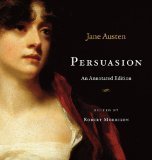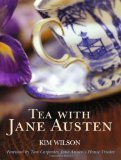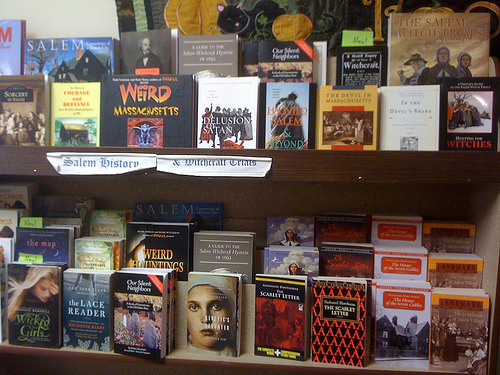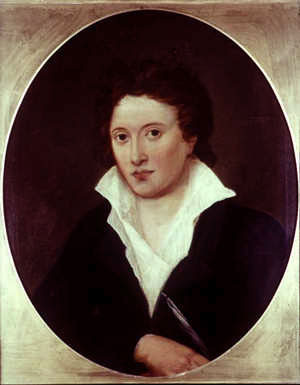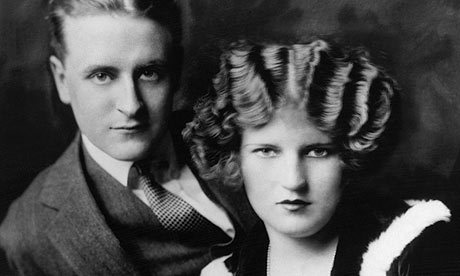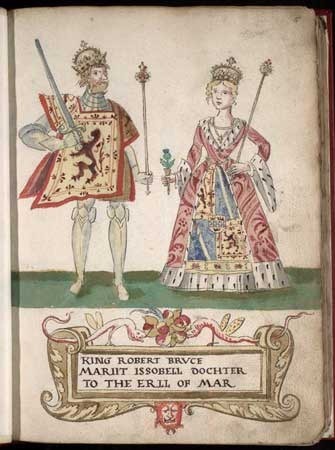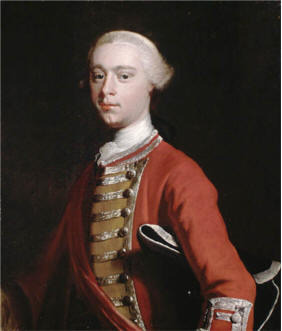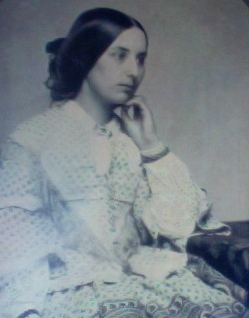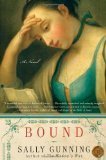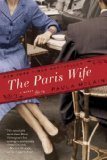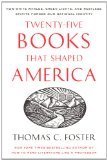Dana Swier Huff's Blog, page 70
June 3, 2011
Friday Finds—June 3, 2010
 I found this week's books either through reviews on blogs or Amazon. It's a very Austen assortment. First up, I discovered that Robert Morrison has edited a new annotated edition of Austen's Persuasion, which is my favorite Austen novel, for Belknap Press at Harvard. I also discovered two new books via Austenprose: Tea with Jane Austen and In the Garden with Jane Austen by Kim Wilson. I am a terrible gardener; I have the worst brown thumb ever, and it's particularly bad considering my mother and grandfather seem to be so good with plants and gardens. However, this book looks so interesting. I am a bit more intrigued even by the tea book. I am a huge fan of a great cup of tea. I am looking forward to purchasing these books so that I can pore over the images.
I found this week's books either through reviews on blogs or Amazon. It's a very Austen assortment. First up, I discovered that Robert Morrison has edited a new annotated edition of Austen's Persuasion, which is my favorite Austen novel, for Belknap Press at Harvard. I also discovered two new books via Austenprose: Tea with Jane Austen and In the Garden with Jane Austen by Kim Wilson. I am a terrible gardener; I have the worst brown thumb ever, and it's particularly bad considering my mother and grandfather seem to be so good with plants and gardens. However, this book looks so interesting. I am a bit more intrigued even by the tea book. I am a huge fan of a great cup of tea. I am looking forward to purchasing these books so that I can pore over the images.
[image error]
Post © Dana Huff
Friday Finds—June 3, 2010

June 2, 2011
Booking Through Thursday: Reviews
This week's Booking Through Thursday question asks, "Do you read book reviews? Whose do you trust? Do they affect your reading habits? Your buying habits?"
I do read book reviews, but not necessarily in newspapers (although sometimes I do). My main source for good reviews is Goodreads. I do read Amazon reviews, but I find Goodreads reviewers are more critical, and if I am at all on the fence about a book, I check out Goodreads before I buy it. There is no one particular reviewer I follow more than others, but I do find some reviewers seem to like the same books I do. If several reviews note some fairly serious issues with a book, I am likely not to bother with it, so the reviews do affect my reading and buying habits. I can be a notorious fence sitter. I sometimes think about whether I will like something or not for a long time. Sometimes I just know I will. What's funny about those items I think on for a long time is that they often wind up being my favorites. Still, I think that mulling over reading selections and purchases is hardly a bad idea.
What about you?
[image error]
Post © Dana Huff
Booking Through Thursday: Reviews

June 1, 2011
WWW Wednesdays—June 1, 2011
 To play along, just answer the following three (3) questions…
To play along, just answer the following three (3) questions…
• What are you currently reading?
• What did you recently finish reading?
• What do you think you'll read next?
I am currently reading The Secret Diary of a Princess by Melanie Clegg and A Jane Austen Education: How Six Novels Taught Me About Love, Friendship, and the Things That Really Matter by William Deresiewicz. I am thoroughly enjoying Melanie Clegg's book. Not far enough into the other yet to say, but I love Jane Austen.
I recently finished The Story of Britain: From the Romans to the Present: A Narrative History by Rebecca Fraser. I was reading it for about six months! You can read my review of it here.
I think after I finish my next book, I might read The Tempest by William Shakespeare so that I can more thoroughly enjoy The Dream of Perpetual Motion by Dexter Palmer. I am looking forward to trying my first steampunk novel.
[image error]
Post © Dana Huff
WWW Wednesdays—June 1, 2011

May 31, 2011
The Story of Britain, Rebecca Fraser
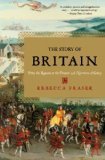 Rebecca Fraser's comprehensive book The Story of Britain: From the Romans to the Present: A Narrative History delivers exactly what the title promises: Britain's history for approximately the last 2,000 years. With such vast subject matter, 800+ pages seems like an achievement in brevity. Fraser's chapters are divided by monarchs, and until the Prime Minister is established as leader, the chapters mainly focus on the monarchy. After the introduction of the Prime Minister, focus shifts to the Prime Minister, Parliament, and more general matters. Sprinkled among the hard history, Fraser shares stories some readers might consider trivial, but that are nonetheless entertaining. Rather than pick out one thing, it might be easier for you to scan my public notes and highlights. The monarchy comes off well in the narrative, as do Winston Churchill and Margaret Thatcher. The book overall has a sort of liberal bent, however, which the author takes no pains to disguise (this is not a criticism but an observation).
Rebecca Fraser's comprehensive book The Story of Britain: From the Romans to the Present: A Narrative History delivers exactly what the title promises: Britain's history for approximately the last 2,000 years. With such vast subject matter, 800+ pages seems like an achievement in brevity. Fraser's chapters are divided by monarchs, and until the Prime Minister is established as leader, the chapters mainly focus on the monarchy. After the introduction of the Prime Minister, focus shifts to the Prime Minister, Parliament, and more general matters. Sprinkled among the hard history, Fraser shares stories some readers might consider trivial, but that are nonetheless entertaining. Rather than pick out one thing, it might be easier for you to scan my public notes and highlights. The monarchy comes off well in the narrative, as do Winston Churchill and Margaret Thatcher. The book overall has a sort of liberal bent, however, which the author takes no pains to disguise (this is not a criticism but an observation).
In all, the book was by turns delightful and intriguing, but I have some quibbles with it that prevent it from earning five stars. First, Fraser frequently neglects to use commas in situations when doing so would make her writing clearer. A reader should not have to re-read sentences two and three times when a simple comma could have clarified meaning. I know commas can be a style issue, but in nonfiction writing, I expect a more faithful adherence to grammatical and mechanical rules. If that sounds to English teacher school marmy, then I apologize, but above all, nonfiction should inform, and readers should not be distracted by punctuation errors as they are trying to understand what they're reading. Another quibble I have with the book is that I know Fraser made some errors. Case in point, she refers to Sputnik as a manned space craft. In another instance, she refers to great naval hero as Paul Jones. He was John Paul Jones. Minor? Perhaps. However one was his full name and the other was not. Fraser seems particularly weak when referencing American history, which makes sense given it is not the subject of her book—another example is the slogan "Fifty-four Forty or Fight," which Fraser renders "Fifty-four Fifty or Fight." Such inaccuracies may be minor, but they made me question the accuracy of everything else I read that I didn't know. From what I can tell, the book is largely accurate, but these issues did make me question.
In all, the book is a fascinating read about the history of a fascinating country, and setting aside the issues I had with it, I'm glad I read it. I learned a great deal from it, and it sparked some interest in eras I previously had not given much study to. I would recommend it highly to anyone interested in British history and/or culture. You might find it handy to read on the Kindle like I did: it's a chunkster if you have to prop it up in bed.
Rating: 4 out of 5 stars
[image error]
Post © Dana Huff
The Story of Britain, Rebecca Fraser

May 30, 2011
Musing Mondays—May 30, 2011
Describe the last time you were stumped for something to read, and you took measures to remedy that—either by going to the bookstore, the library, or shopping elsewhere. What book did you choose? Did it get you out of your slump?
My problem is never lacking for something to read, but I often have trouble choosing what to read next. One thing I have done to solve my dilemma in the past is to lay my choices in front of my daughter Maggie and ask her to choose for me. The last time I asked Maggie was a long time ago, and I can no longer remember what she chose for me. I also asked readers to vote on my next book once when I was stumped. They chose American Gods. Most recently, I have also used the Randomizer after assigning numbers to around five choices. It chose Melanie Clegg's The Secret Diary of a Princess, which I was leaning toward reading next anyway. I can't really say I've been in a slump for a very long time. I just read whatever I have on hand or I download something new on my Kindle.
Speaking of going to the bookstore, you know, I can't remember the last time I went to one. I usually order books from Amazon or download them on my Kindle. I know I should frequent indie stores, but the closest one I know of (besides the used bookstores) is one all the way over in Decatur, and whenever we go to the Decatur Book Festival, we do in fact visit the Little Shop of Stories. However, I also note that I pay more for books in places like that. As an Amazon Associate, I earn a bit of a commission whenever people buy books I link to or visit Amazon and purchase items after following a link from my site. Most months, my commission is enough to buy two books. Some months, it's more than that. I consider it fair trade for all the business I throw their way, and in turn, I use the gift certificates I earn from Amazon to purchase more books. It's more cost effective for me to shop at Amazon than it is an indie store—on a variety of levels. And bottom line? I am a happy customer. They've always been good to me; even after I broke my Kindle, they asked no questions and replaced it free of charge. I have never had a complaint with them. My only quibble is that they won't allow associates to delete associate ID's they no longer use, and I have about three of those.
I haven't been to the library in a long time either. Here is my problem with libraries: I don't like the time pressure to finish books, and I am almost always late returning books. I also like to be able to keep books I liked and perhaps even mark in them. Libraries are so important. They perform critical functions in our society. Keeping up with library books nowadays isn't all that difficult. I can check my account online. I have just found it one more thing I have trouble keeping track of.
I don't often buy books from other types of stores. The selections are just too sparse and not usually to my taste. One place I do find lots of good books is from other book bloggers. I heard about most of the books I've picked up lately from a fellow book blogger or from Goodreads.
[image error]
Post © Dana Huff
Musing Mondays—May 30, 2011

May 29, 2011
Historical Crushes
Madame Guillotine posted about her historical crushes recently, and what a fun idea!
Mine are mostly writers.
First, Byron, a perfect rake to be sure, but so handsome, and probably charming (or else he wouldn't have been such a successful rake).
Portrait by Richard Westall
To be honest, having a historical crush on Byron is the modern equivalent of crushing on bad boys, but much safer. No risk of life or limb. I have read several fictional portraits of Byron, and he always emerges as charismatic, intelligent, and, above all, interesting. Read my reviews of Passion by Jude Morgan and Lord Byron's Novel: The Evening Land by John Crowley, or better yet, read the books yourself, and you'll see what I mean.
I have had a mad crush on Shelley since 1989. I am not sure why, but his poetry just speaks to me.
Percy Bysshe Shelley, 1819, by Amelia Curran
Jude Morgan managed to do what I thought would be impossible in his novel Passion: A Novel of the Romantic Poets: he managed to make Shelley walk on the ground. I always thought he should be among the angels—surely too good for the solid earth.
You can read about the dream I had about having tea with Byron, Shelley, and Keats. I've posted about my crush on Shelley before.
Ever since I read The Great Gatsby, I have had a crush on F. Scott Fitzgerald. He writes some of the most beautiful prose in American English.
Scott and Zelda Fitzgerald, Corbis
He drank way too much, and he thought way too highly of rich people (which is something I glean from reading his novels rather than from a mis-attributed quote Hemingway pinned on him). Hemingway should be more grateful. The Sun Also Rises was a better book for Fitzgerald's suggestion of deleting the first chapter and beginning with the second. And I love that book, by the way. There are some passages in The Great Gatsby that you can't beat for poetry. So we beat on, boats against the current, borne back ceaselessly into the past.
Robert the Bruce got a raw deal in Braveheart. I know the film was supposed to be about why William Wallace was such a hero, but honestly, did they have to besmirch the character of Scotland's greatest hero in order to make Wallace look good? For starters, Robert the Bruce did not fight with the English at Falkirk or betray Wallace. He also didn't decide on the spur of the moment at Bannockburn that he was not going to surrender after all—he was never going to surrender. Any argument the two had was the result of the fact that Wallace probably supported the Balliol claim to the Scottish throne.
Robert the Bruce and Isabella of Mar
One of my favorite legends about Robert the Bruce is the one about the spider. He was a wanted man, an outlaw on the run. Hiding in a cave, he observed a spider trying to make a web. It failed time and again as it tried to attach the silken threads from one section of the cave's roof to another. Finally, it succeeded, and Robert the Bruce knew that he, too, would eventually succeed in his quest to take the throne he believed was rightfully his. And he did. It's most likely a complete fabrication, but an inspiring one. Ronald McNair Scott has a great biography of Robert the Bruce: Robert the Bruce: King of Scots.
Queen Elizabeth, while famously known as the Virgin Queen (yeah, right), had a thing for Robert Devereux, the 2nd Earl of Essex (at least according to many historians). He was so dashing that men clamored to imitate his fashionable beard.
Robert Devereux, 2nd Earl of Essex
He was a military hero, but more than that, he had some serious cojones. He came back from Ireland after the Queen expressly forbid it and charged into her bedchamber before she had her wig on. Of course, he eventually paid for this flagrant disregard for propriety with his life (or, to be more accurate, it was the incident that instigated his inexorable fall from favor, rebellion, and eventual execution). Elizabeth was a formidable woman. Anyone who could pull a sword on her after she smacked him one deserves some grudging respect.
There is a legend that Alfred the Great was in disguise and took shelter with a peasant woman. She asked him to mind the cakes on the fire and not let them burn, but he was preoccupied with the troubles of his country. The cakes burned, and the woman scolded the King. Like the story about Robert the Bruce's spider, it may or may not be true, but it makes a great tale.
Statue of Alfred the Great
Alfred is the only English king to have been given the epithet "the Great." I am obsessed with the British monarchy. There are a load of interesting characters in that crowd. But trust me that Alfred is probably the only one who deserves the epithet "the Great." He singlehandedly saved the English language. Don't believe me? Listen to this. If Alfred had lost that battle, who knows where we would all be. Not only did he prevent Vikings from taking all of England, he also valued literacy and ordered translation of essential Latin texts into English for the first time. He also established some of the earliest schools in England.
In Rebecca Fraser's The Story of Britain: From the Romans to the Present: A Narrative History, a story about Major General James Wolfe taking Quebec is recounted:
At dead of night, Wolfe led the the 5,000 British and American soldiers with blackened faces silently downriver in rowing boats till they were opposite the Heights of Abraham. As he was borne along the treacherous river whose rocks and shoals made it a hazard to all but Quebeçois, Wolfe softly read out his favourite poem, Elegy Written in a Country Churchyard by Thomas Gray, published only a few years before, a copy of which his fiancée had just sent out to him from England. His thin face, touched by moonlight, seemed to wear a beatific expression as he murmured the sonorous words whose Romantic, melancholic spirit echoed his own. As the mysterious cliffs loomed up ahead and the men rested on their muffled oars, Wolfe closed the book. 'Well, gentlemen,' he said, 'I had rather have written that poem than take Quebec.' But then he leaped overboard, into the swirling St Lawrence, and ran ahead of them until his was only one of the many tiny figures on the vast cliff face pulling themselves up by ropes.
When dawn rose over Quebec Montcalm [the French commander] awoke to see on the plain behind him, above the cliffs said to be unclimbable, row after row of British redcoats. They were in battle array and far outnumbered the French, whose sentries' mangled bodies bestrewed the cliffs or floated in the river below. It was a breathtaking, almost impossible, feat, to have put thousands of men on top of a cliff overnight, but Wolfe had done it.
Major-General James Wolfe
Besides his dashing bravery in the face of illness—he was dying of consumption when he led the raid—he has an appreciation for poetry over military prowess. Why he isn't more well known outside of Canada, I'm not sure.
And finally, after having read Jude Morgan's Passion and seeing the movie Bright Star, I admit to developing a girl crush on Fanny Brawne.
Ambrotype of Fanny Brawne ca. 1850
Fanny Brawne was the fiancée of Romantic poet John Keats and is believed by some scholars to be the inspiration for Keats's sonnet "Bright Star":
Bright star, would I were steadfast as thou art—
Not in lone splendour hung aloft the night
And watching, with eternal lids apart,
Like nature's patient, sleepless Eremite,
The moving waters at their priestlike task
Of pure ablution round earth's human shores,
Or gazing on the new soft-fallen mask
Of snow upon the mountains and the moors—
No—yet still steadfast, still unchangeable,
Pillow'd upon my fair love's ripening breast,
To feel for ever its soft fall and swell,
Awake for ever in a sweet unrest,
Still, still to hear her tender-taken breath,
And so live ever—or else swoon to death.
I wrote much more about her in the post I linked. She was an interesting woman in her own right.
Perhaps next week will be a good time to share my crushes on fictional characters. I must have already done it at some point, but I can't remember.
So who are your historical crushes. And don't say Henry VIII. He didn't look like Jonathan Rhys Meyers. He had a disgusting sore from a jousting wound, he was despotic and arrogant, and he was a serial wife murderer. I will concede he was interesting.
[image error]
Post © Dana Huff
Historical Crushes

May 27, 2011
Friday Finds—May 27, 2011
 I think I found one of this week's new books via Any New Books. I'm also sharing some I found some time ago and forgot to tell you about.
I think I found one of this week's new books via Any New Books. I'm also sharing some I found some time ago and forgot to tell you about.
I first found out about Bound by Sally Gunning after reading The Rebellion of Jane Clarke by the same author (review). Somebody reviewed The Paris Wife by Paula McClain recently, and I forget who it was. I am sorry! Speak up if it was you because it made me want to read the book. I downloaded it on my Kindle tonight. I just love Hemingway. I had a friend in college who was named after Hadley Hemingway. To round out the American literature theme, I also discovered that Thomas C. Foster of How to Read Literature Like a Professor: A Lively and Entertaining Guide to Reading Between the Lines (review) fame has a new book called Twenty-five Books That Shaped America: How White Whales, Green Lights, and Restless Spirits Forged Our National Identity. I'm all over that.
Did you find any good looking books this week?
[image error]
Post © Dana Huff
Friday Finds—May 27, 2011

May 26, 2011
Booking Through Thursday: Rut
 This week's Booking Through Thursday asks "Do you ever feel like you're in a reading rut? That you don't read enough variety? That you need to branch out, spread your literary wings and explore other genres, flavors, styles?"
This week's Booking Through Thursday asks "Do you ever feel like you're in a reading rut? That you don't read enough variety? That you need to branch out, spread your literary wings and explore other genres, flavors, styles?"
Maybe folks who read my blog would say I am in a reading rut because I tend to read a lot of similar things back to back, and I do tend to focus on certain settings and time periods. However, I think it's only a rut as long as the reader feels trapped in a certain narrow area. I just don't. I read different things when I want to, and I read similar things when I want to. Life is short, and we should spend it reading books we love. Why force yourself into trying something for the sake of trying it if you're happy with what you're reading? That's not to say one shouldn't branch out and read different things. I think the point is to be open to books, but also not to feel as though we have to branch out or pull ourselves out of a rut if the only reason we're doing it is change things up. Unless you want to change things up, of course. I just don't like the sort of artificial constraints that forcing myself to try different books puts on me. I want to feel free to read whatever I like, whenever I like.
[image error] photo credit: jasonr611
[image error]
Post © Dana Huff
Booking Through Thursday: Rut

May 25, 2011
WWW Wednesdays—May 25, 2011
 To play along, just answer the following three (3) questions…
To play along, just answer the following three (3) questions…
• What are you currently reading?
• What did you recently finish reading?
• What do you think you'll read next?
I am currently reading The Secret Diary of a Princess by Melanie Clegg, The Man in the Iron Mask by Alexandre Dumas, and The Story of Britain: From the Romans to the Present: A Narrative History by Rebecca Fraser. Yep. Still.
I recently finished One of Our Thursdays Is Missing by Jasper Fforde (read my review).
I am still thinking about reading The Tempest once school is out so I can read The Dream of Perpetual Motion.
[image error]
Post © Dana Huff
WWW Wednesdays—May 25, 2011

May 22, 2011
One of Our Thursdays is Missing, Jasper Fforde
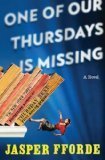 The sixth book in Jasper Fforde's Thursday Next series, One of Our Thursdays Is Missing is set amid turbulence in the BookWorld. An all-out genre war is threatening to break out between Racy Novel and Women's Fiction. And Jurisfiction/Spec Ops agent Thursday Next is missing. It's up to her written counterpart to get to the bottom of Thursday's disappearance. Meanwhile, she is asked to substitute for the real Thursday at peace talks between Racy Novel and Women's Fiction. She begins to wonder if she might be the real Thursday Next, which would make the plot a whole lot more complicated.
The sixth book in Jasper Fforde's Thursday Next series, One of Our Thursdays Is Missing is set amid turbulence in the BookWorld. An all-out genre war is threatening to break out between Racy Novel and Women's Fiction. And Jurisfiction/Spec Ops agent Thursday Next is missing. It's up to her written counterpart to get to the bottom of Thursday's disappearance. Meanwhile, she is asked to substitute for the real Thursday at peace talks between Racy Novel and Women's Fiction. She begins to wonder if she might be the real Thursday Next, which would make the plot a whole lot more complicated.
After a fairly slow start, the novel picks up, but it doesn't quite measure up to the other books in the series. The written Thursday just isn't as much fun as the real Thursday, and the puns and jokes that usually have me laughing out loud as I read Jasper Fforde were in much shorter supply. It is definitely my least favorite of the series so far, and I hope that any future Thursday Next books will not continue down this road. If you haven't read the series, I don't recommend starting with this book, as I think it will put you off Fforde, and his other books are really good. He's one of my favorite writers, but this book is a disappointment in comparison with the others. If you have read the series, then you will probably want to read this one, too, so prepare yourself. I seem to be in the minority: most of the reviews I have read are positive. You might find it more to your liking than I did. And I would not be honest if I didn't say that there are some genuinely funny, laugh-out-loud moments. Once the book picked up steam, I finished it in the space of about five hours or so, but I've never had to wait so long for Fforde to hook me before.
Rating: 3.5 out of 5 stars
Other books in the series:
The Eyre Affair (review)
Lost in a Good Book (review)
The Well of Lost Plots (review)
Something Rotten (review)
Thursday Next: First Among Sequels (review)
[image error]
Post © Dana Huff
One of Our Thursdays is Missing, Jasper Fforde


